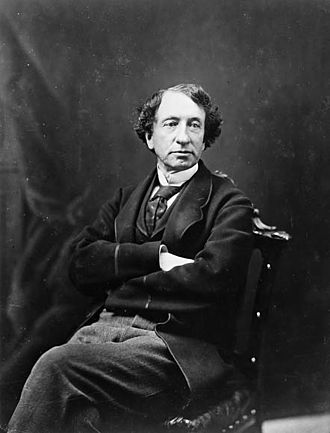The Canadian Establishment has begun to celebrate the 200th anniversary of Sir John A Macdonald’s birth in 1815. Prime Minister Harper even skipped events to honour the Charlie Hebdo victims in Paris so that he could be in Kingston to commemorate Macdonald’s birthday. But there is a darker story here about the man often considered to be the father of Confederation.
James Daschuk, an assistant professor at the University of Regina, has written a book called Clearing the Plains: Disease, Politics of Starvation and the Loss of Aboriginal Life. He describes how Macdonald deliberately used the politics of famine to force Indigenous people into submission so that Canada could build a railway and populate the West with European settlers.
Daschuk quotes Sir John from the House of Commons describing his government’s policy as follows: “We cannot allow them to die for want of food … [We] are doing all that we can by refusing food until the Indians are on the verge of starvation, to reduce the expense.”
Macdonald and presentism
In mid-January Globe and Mail columnist Jeffrey Simpson weighed in regarding what he called “presentism” in judging Macdonald. Simpson wrote a column about Abraham Lincoln and John A Macdonald both of who he said were flawed, but also great statesmen whose accomplishments are apparent in the health and survival of their respective nations.
“To judge them through the prism of their flaws,” Simpson wrote, “is to deliberately minimize their accomplishments and to engage in historical ‘presentism,’ the application of today’s standards to those that prevailed long ago.”
Simpson sees presentism being practiced by “Aboriginal writers and advocates of Aboriginal causes,” not to mention people in university departments. He says presentism “is always popular with those for whom history is a stick with which to beat today’s drums of injustice and to read their particular narratives into the past.”
I respect Simpson as a knowledgeable commentator on Canadian public life but few would ever accuse him of being a champion of the underdog. History, not to mention the present, appears much differently when looked at from the top down up rather than from the bottom up.
Nagging questions
Among the European settlers who populated the Canadian West in the nineteenth century, racism was ubiquitous, what academics now call the colonial settler mentality. Sadly, racism is still common today, as we have heard recently from leaders in Winnipeg, and as I learned as a political candidate knocking on doors in Saskatoon during the four federal elections that I contested between 1997 and 2004.
A nagging question when we talk about how to judge past actors relates to both the time frame and the scope of their actions. I can’t imagine that anyone would forgive or excuse perpetrators of the twentieth century holocaust. But what about the genocide committed against Aboriginal people in the Americas by the Spanish conquistadores? Should they be excused because their atrocities occurred at a time when Europeans had not yet decided if Indigenous people were even human beings?
In Macdonald’s case, his attitude about the inferiority of Indigenous people was conventional thinking at the time, but the extent of his actions presents a problem for his defenders. Did he use starvation and near starvation as a weapon against Indigenous people in Western Canada whose communities had been decimated by loss of the bison? Daschuk says he did and that the deliberate withholding of food to hungry people led to hundreds of deaths by starvation, and also created the conditions for a tuberculosis epidemic in Indigenous communities.
I have heard no worthy refutation of Daschuk’s claims. In fact, he has been awarded the Sir John A. Macdonald Prize for a Canadian book of history judged to have made the most significant contribution to an understanding of our past. This is highly ironic but it also means that Daschuk has written a good book.
Myth of decency
History is less than valuable if it does not inform the present. If we are not to beat Sir John “with a stick” to quote Jeffrey Simpson, can we at least learn something here that is applicable and useful today?
Daschuk thinks we can. “White Canadians have not heard this story. We have this myth of decency, friendliness, and helping our neighbours,” he told his audience at a book event in Ottawa. “But in our relationship with indigenous peoples we have not been decent. I live in hope that we will become more open-minded about what is going on in Canada.”



